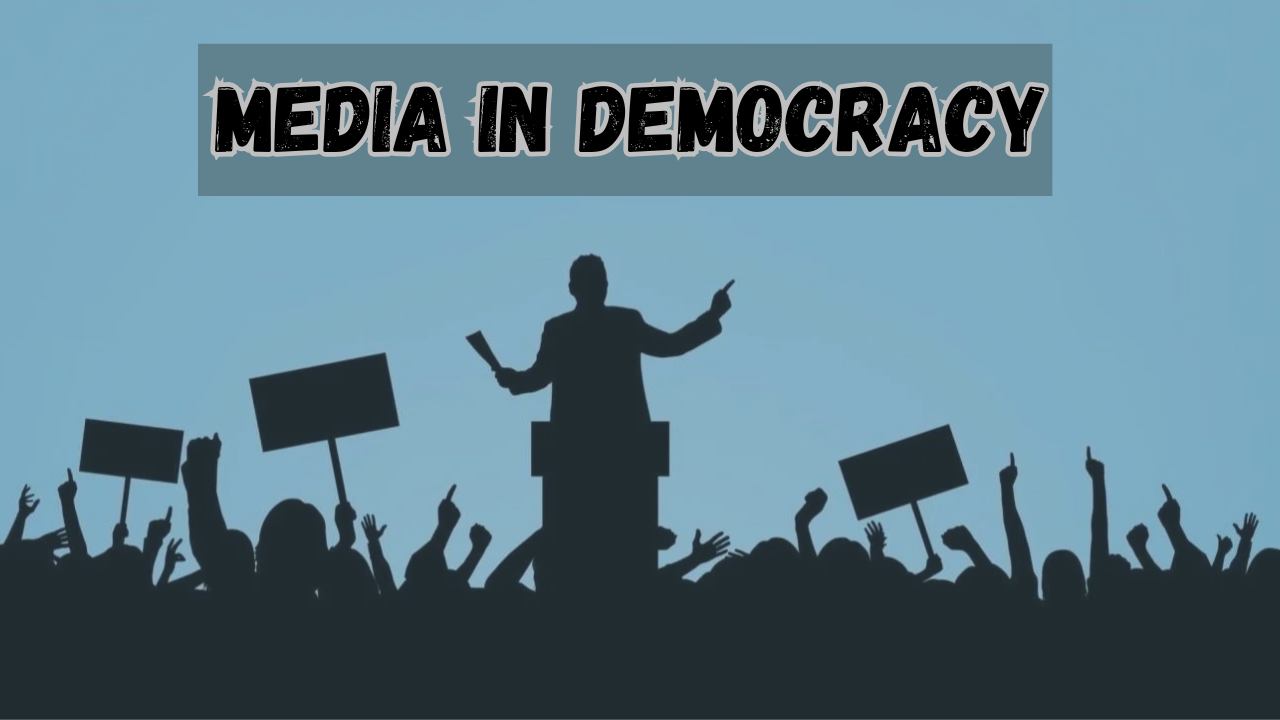The media plays a crucial role in a democratic society by ensuring that citizens stay informed engaged and aware of issues that impact their lives it serves as a bridge between the government and the people providing essential information that helps individuals make educated decision a free and independent press holds leaders accountable exposing corruption injustice and unethical practices without the media democracy would struggle as citizens rely on it to access unbiased news political debates and diverse perspectives in a functioning democracy media acts as a watchdog, questioning policies and ensuring transparency.
It also provides a platform for public discussions enabling people to express opinions and influence decision-making media bias and misinformation can pose challenges shaping public perception in ways that may not always reflect the truth responsible journalism is essential to maintaining trust and upholding democratic values with the rise of digital media and social platforms access to information has expanded allowing more voices to be heard while this offers great opportunities it also demands critical thinking from the public to differentiate between credible news and misinformation.
The Evolution of Media in the Digital Age:
In the past few decades, media has undergone a profound transformation reshaping the way people consume share, and interact with information from the early days of print newspapers and radio broadcasts to the rise of television and the internet media has continually adapted to technological advancements the digital age has accelerated this evolution at an unprecedented pace, introducing new forms of communication, entertainment, and journalism that have revolutionized global connectivity.
Social media platforms, streaming services, and online publications have replaced traditional media as the dominant sources of news and entertainment, enabling instant access to content from anywhere in the world. This shift has not only democratized information but also presented new challenges, such as misinformation, digital privacy concerns, and the struggle for media credibility. As society navigates this rapidly changing landscape, understanding the evolution of media in the digital era is crucial to recognizing its impact on culture, communication, and the way people perceive reality.
The Challenges Facing the Media:
Despite its critical role the media faces numerous challenges in fulfilling its democratic duties these challenges include:
Political Interference and Censorship: In many countries media outlets are subjected to government control censorship or intimidation journalists who report on sensitive issues often face threats harassment or even violence.
Corporate Influence: Large media conglomerates often have vested interests that may affect the objectivity of reporting this can lead to biased coverage that serves the interests of corporations rather than the public.
Misinformation and Fake News: The rapid spread of unverified information on social media platforms has made it difficult for the public to distinguish between credible news and falsehoods this can manipulate public opinion and erode trust in democratic institutions.
Decline in Investigative Journalism: Due to financial constraints many traditional media outlets have cut back on investigative journalism which requires significant resources and time this weakens the media role as a watchdog.
Threats to Press Freedom: In some regions laws restricting press freedom are enacted under the guise of national security or public order such restrictions limit the ability of journalists to report freely and objectively.
The Responsibility of the Media:
With great power comes great responsibility for the media to effectively serve democracy it must adhere to ethical standards and journalistic integrity responsible journalism entails:
Accuracy and Objectivity: Ensuring that news is based on facts verified sources and balanced reporting.
Independence: Avoiding undue influence from political entities corporations or special interest groups.
Transparency: Disclosing conflicts of interest and sources of funding when necessary.
Accountability: Admitting and correcting errors promptly to maintain credibility.
Public Interest Focus: Prioritizing issues that matter to society rather than sensationalism or entertainment-driven content.
The Future of Media and Democracy:
As democracy evolves so too must the media the future of media in democratic societies depends on:
Strengthening Press Freedom: Governments must uphold press freedom and protect journalists from persecution.
Media Literacy Education: Citizens should be equipped with critical thinking skills to assess news credibility and avoid falling victim to misinformation.
Support for Independent Journalism: Funding mechanisms such as non-profit journalism and public broadcasting can help maintain independent reporting.
Regulation of Digital Platforms: While free speech should be preserved measures should be taken to curb the spread of fake news and hate speech online.
Conclusion:
The media is an essential pillar of democracy ensuring transparency accountability and an informed citizenry it faces growing challenges that threaten its ability to function effectively safeguarding press freedom promoting responsible journalism and fostering media literacy are crucial steps in preserving democracy a society that values and supports a free press strengthens its democratic foundations ensuring that truth and justice prevail.
FAQS:
1. What is the role of media in a democracy?
Media acts as educator and public platform it informs citizens about government actions policies and societal issues enabling them to make informed decisions.
2. How does media influence public opinion in a democracy?
Media shapes public opinion by reporting news framing narratives and highlighting key issues biased or misleading coverage can sway opinions while objective reporting fosters informed decision-making.
3. Why is press freedom important in a democracy?
A free press ensures transparency holds power accountable and exposes corruption without press freedom governments can manipulate information restricting public access to the truth.
